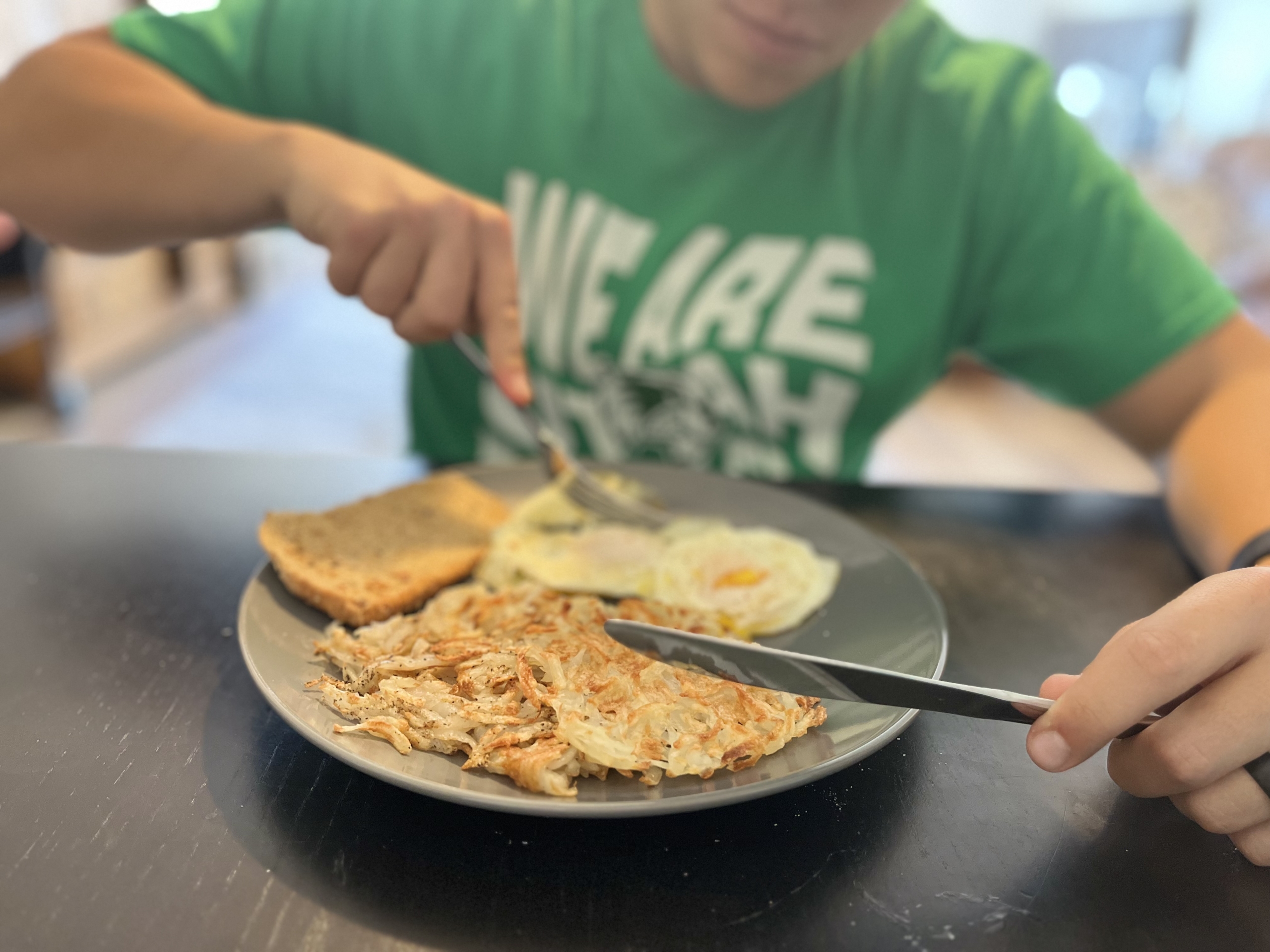
Reading Time: 2 minutes
As final exams approach, students often find themselves in a whirlwind of studying and stress. It’s crucial to remember that foods can significantly influence students’ energy levels and cognitive function. Here’s a guide to some brain-boosting foods and drinks that can help students ace their exams, according to Dr. Patrick Alban and biologist Deane Alban.
Avocados: These unique fruits are packed with monounsaturated fats, essential for healthy brain function. Avocados also contain tyrosine, an amino acid that aids in the production of dopamine, keeping you focused and motivated??.
Omega-3 rich foods: Omega-3 fatty acids are vital for brain health, particularly DHA, which is abundant in the cerebral cortex. Excellent sources include wild-caught fish, grass-fed beef and walnuts. Walnuts are especially beneficial as they also contain mood-elevating serotonin????.
Eggs: A top source of choline, eggs support brain function by aiding in neurotransmitter synthesis. Choline is a precursor to acetylcholine, linked to memory and learning??.
Berries: Berries are rich in flavonoids, potent antioxidants that protect brain cells and enhance cognitive abilities such as memory, learning and decision-making??.
Dark chocolate: A small amount of dark chocolate can boost memory, mood and concentration thanks to its caffeine content and brain-stimulating compounds including anandamide and phenylethylamine??.
Turmeric: This spice contains compounds such as curcumin and turmerone, known to promote new brain cell growth and repair brain cells. Just a half-teaspoon a day can be beneficial??.
Olive oil: Known for its heart-healthy fats, olive oil is also excellent for your brain. It enhances memory and cognitive functions and is a staple in the Mediterranean diet, known for its brain health benefits??.
Sea vegetables: Rich in tyrosine and iodine, sea vegetables such as nori support brain health and function, particularly in the creation of dopamine??.
Coffee and milk: According to journalist Richard Fendler, a cup of coffee can boost attention and motivation, while milk adds a dose of protein. However, it’s crucial to balance caffeine intake to avoid energy crashes??.
Green vegetables: According to Graduate Coach, vegetables such as kale, spinach and broccoli are high in fiber and essential vitamins, providing a steady energy release and vital nutrients for brain function??.
Nuts and dairy: Another article from Victor Agboga proposes that instead of sugary snacks, opt for nuts, cottage cheese and yogurt. These protein-rich foods enhance memory retention and increase energy levels??.
In terms of drinks:
- Stay hydrated: Dehydration can significantly impair cognitive skills. Regular water intake is crucial, especially during study sessions and exams??.
- Caffeine intake: While caffeine can enhance focus and productivity, it’s essential to consume it in moderation. Overconsumption can lead to anxiety and sleeplessness. Green tea is a great alternative, as it contains l-theanine, which promotes relaxed focus????.
What to eat on exam day:
- Start with a substantial breakfast containing a balance of protein, fat and complex carbohydrates. This helps improve alertness and performance??.
- For lunch and dinner, continue to balance healthy fats, protein and carbs to maintain stable blood sugar and brain chemistry??.
- Opt for brain-healthy snacks such as raw veggies with a yogurt dip, crackers with hummus, or apples with cheese or peanut butter??.
Additional tips for exam day:
- Sipping water during the exam can boost performance.
- Chewing gum or eating mints, especially peppermint, can improve focus and cognitive speed.
- Inhaling rosemary essential oil can enhance cognitive speed, accuracy, and mood, reducing anxiety??.
